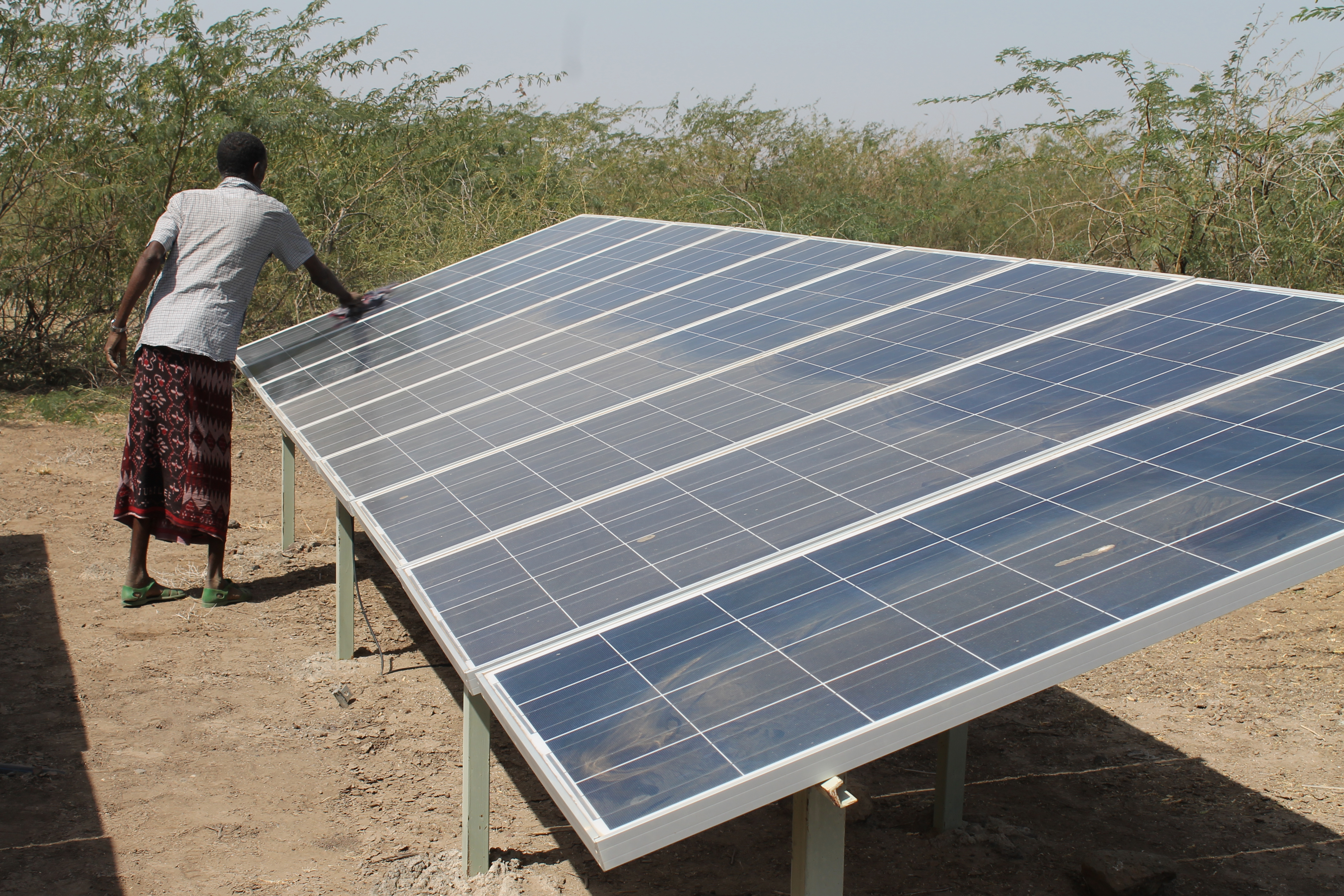
In the most remote and rural lowland regions of Ethiopia, pastoralist communities are underserved in terms of basic infrastructure, including roads and electricity. As a result, these communities have relied heavily on diesel-generated power to help pump critical water supply from deep, motorized groundwater wells. Diesel fuel, however, means added transportation costs for delivery to these remote areas, creating an additional challenge for local communities. In order to improve the resiliency of access to safe water sources from motorized water wells, our USAID Lowland Water, Sanitation and Hygiene Activity is equipping an increasing number of water systems with solar-power as an alternative to diesel fuel.
In collaboration with Ethiopia’s Ministry of Water, Irrigation, and Energy (MoWIE), DT Global provides technical trainings on solar water pumping systems to staff from the MoWIE, Ethiopian Water Technology Institute (EWTI), the Somali and Afar Regional Water Bureaus (RWB), local Technical Vocational Education and Training (TVET) centers, and Woreda Water Offices (WWO). To date, over 30 staff have been trained in design and specification of solar water pumping systems at EWTI’s campus in Addis Ababa. Additionally, two regional trainings were held on operation, maintenance and troubleshooting of solar-powered water systems, with over 50 staff from MoWIE, EWTI, RWBs and WWOs and the TVET centers attending each training.
The Activity went a step further by delivering a training of trainers (ToT) program to EWTI and offered lessons plans and presentation materials at the end of the training to facilitate integration into their regular curriculum. Through this initiative, DT Global is accelerating EWTI’s long-term goal to begin teaching solar powered water system design and operations at its Addis Ababa campus for students from all nine regional states.
Finally, to ensure sustainability, the Activity worked with MoWIE to develop a MoWIE Guideline for the Operation, Maintenance, and Trouble-Shooting of Solar Water Pumping Systems and to update the 2013 MoWIE Guideline for Design and Implementation of Solar Powered Water Systems. These guidelines were made available in early 2019 by MoWIE to all nine regions, as well as international donors, NGOs, and the private sector to help encourage the proper design, construction and maintenance of solar powered water systems throughout Ethiopia.
By the end of September 2019, twelve solar-based systems will have been constructed or rehabilitated by the USAID Lowland WASH Activity in the Ethiopian lowland communities of Afar and SNNP, providing an estimated 31,755 Ethiopians with improved access to safe drinking water.